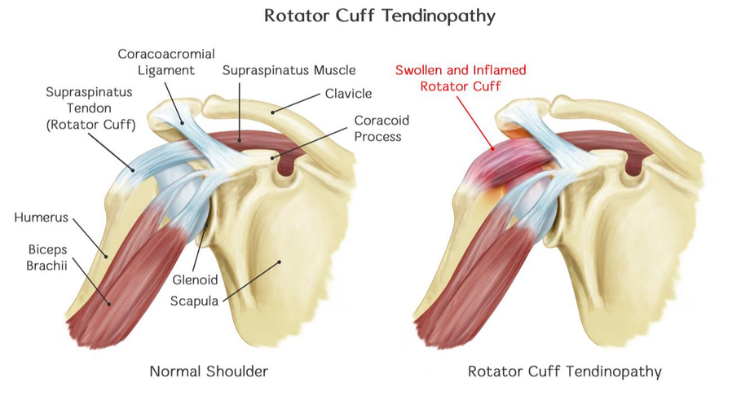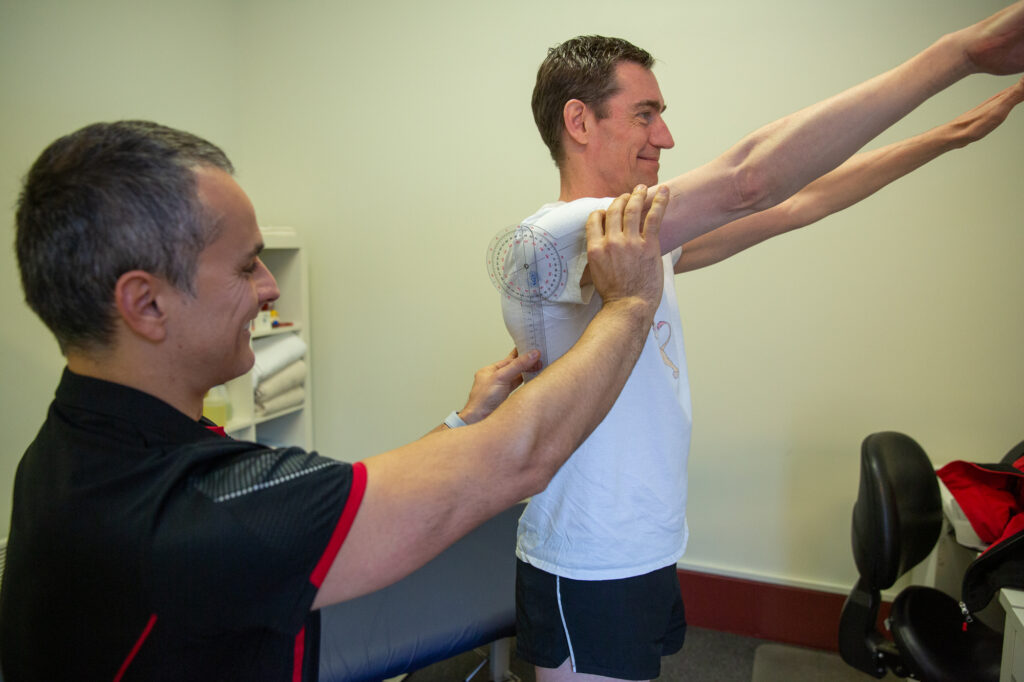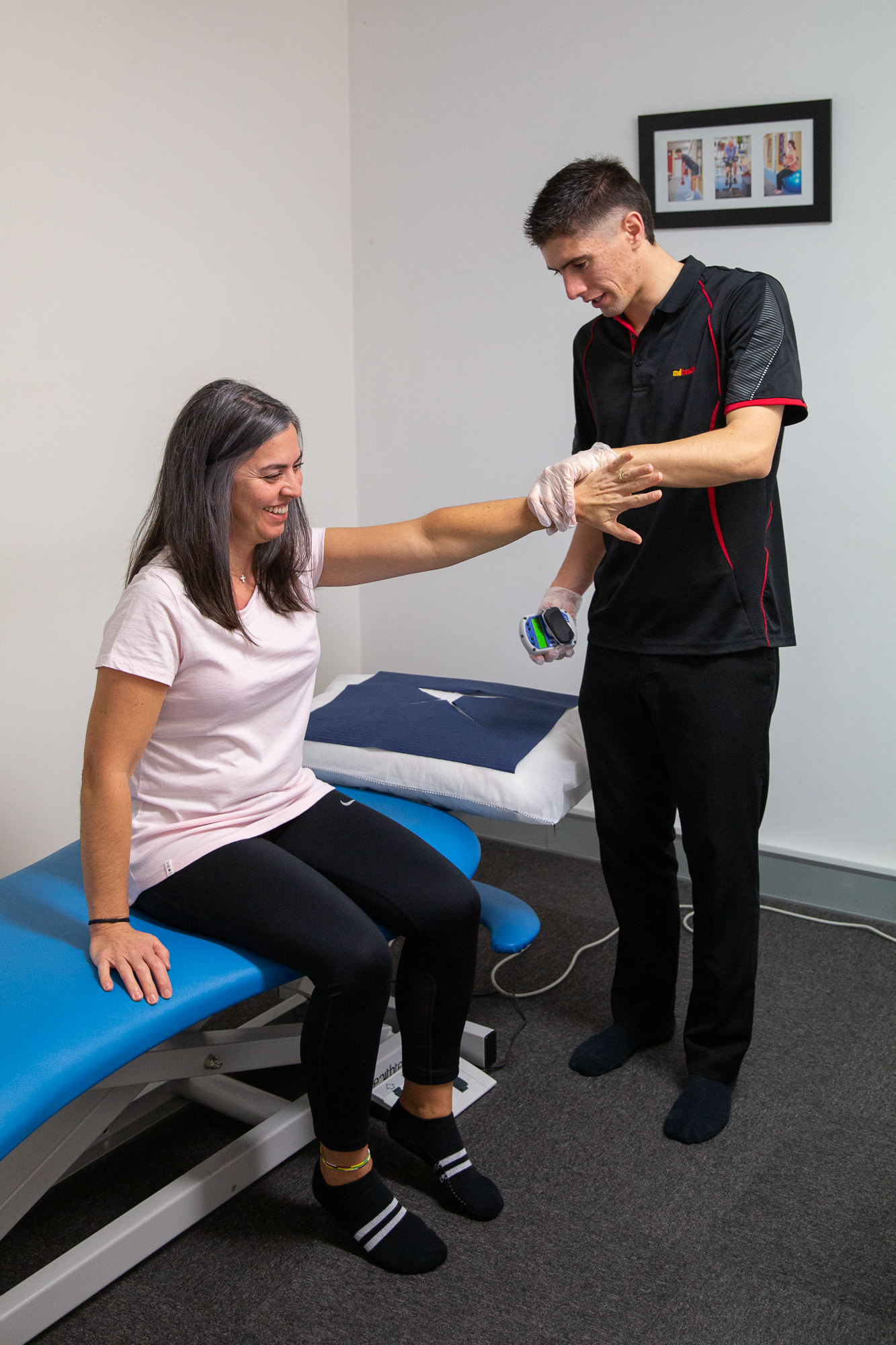Rotator Cuff Tendinopathy - Fact Sheet
What is it?
The rotator cuff is a group of 4 muscles that surround the shoulder. They work mainly as a dynamic stabilizer of the shoulder, ensuring the shoulder joint is stable when moving in all directions. The rotator cuff tendons act like a lever on the shoulder, helping it rotate securely in its socket. If there has been prior injury to the rotator cuff, or if the rotator cuff tendons are overloaded, tendinopathy can occur, leading to shoulder pain, which can become debilitating.

How does it this happen?
Tendinopathies occur as a result of mechanical overload on a tendon. This basically means the tendon has been subjected too much load that exceeds its current strength or capacity. This can lead to acute inflammation, and in more severe cases, tendon breakdown.

Signs and Symptoms
• Unilateral, sharp shoulder pain, particularly with overhead movements, reaching movements, or moving the up upwards out to the side (abduction)
• This pain can refer down the side of the shoulder, normally about halfway to the elbow
• Pain is generally worse in the morning, before the tendon has “warmed up”.
• Pain can follow activities that load the tendon, despite the tendon being non-painful at the time.
• Stiff shoulder joint, as a result muscle bracing/protection.
• Tendinopathy can follow a rotator cuff injury (particularly if this injury wasn’t rehabbed properly), as following injury the tendon has a severely reduced capacity.

Treatment of Rotator Cuff Tendinopathy?
Activity Modification / Deloading: This involves identifying exercises, activities and movements that have the potential to flare up your tendinopathy, and providing viable alternatives to these. This way, the tendon has some time to settle down and become less irritable.
Strengthening exercises: The MOST IMPORTANT part of tendon rehab! This involves gradual strengthening over the rotator cuff tendons, with progressions. If the tendon is particularly irritable (currently painful or flare ups occur after activity), our staff will provide you with ISOMETRIC exercises (a sustained muscle contraction of up to 1 minute) initially. Once the tendon has settled down (which can take 2-3 weeks), we will progress these exercises as necessary.
A positive attitude! These issues can take some time to resolve, particularly if you have been struggling with this issue for a few months. Don’t get disheartened! You WILL get better!
*** Please note that surgical interventions or injections are NOT indicated for rotator cuff tendinopathies! Tendon injections can lead to further tendon breakdown and increased pain.



